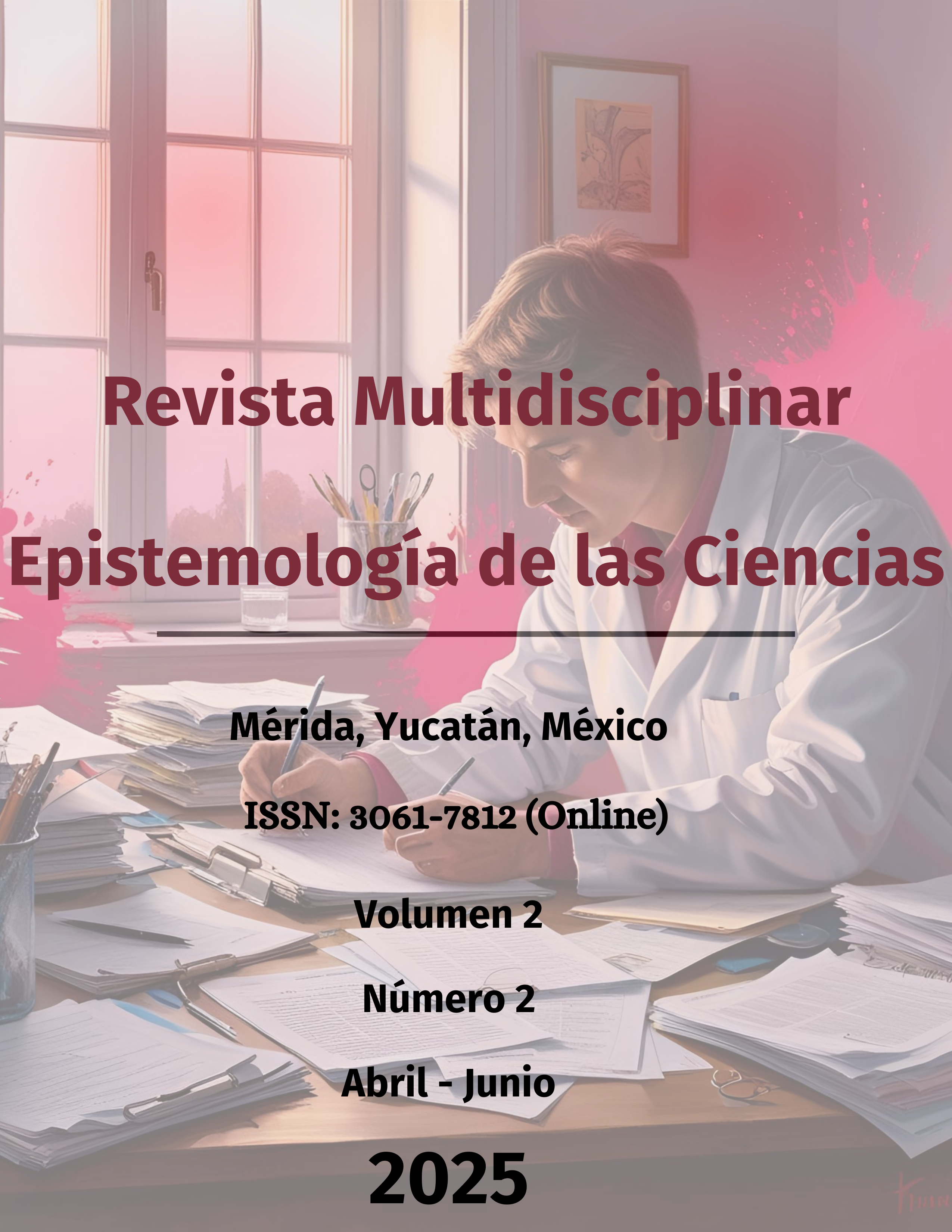Organizational culture as a catalyst for social innovation: empirical evidence from Colombia's Caribbean region
DOI:
https://doi.org/10.71112/fn3c8d34Keywords:
organizational culture, social innovation, sustainability, ethical leadership, water resources managementAbstract
This study examines the impact of organizational culture on social innovation within Aguas de Cartagena S.A., a public utilities company in Colombia’s Caribbean region. Using a structural equation model, the research confirms that values such as collaboration, sustainability, and ethical leadership significantly influence the implementation of social innovation programs, the development of water management solutions, and stakeholder perception. The study fills a national research gap by providing methodologically robust local evidence with strong potential for replication. Findings highlight organizational culture as a strategic driver for corporate sustainability and suggest future research directions across various industries and emerging contexts, particularly in Latin America.
Downloads
References
Barney, J., & Wright, P. (2001). Resource-based view of the firm and innovation. Journal of Management, 27(6), 701–721. DOI: https://doi.org/10.1016/S0149-2063(01)00120-9
Cameron, K., & Quinn, R. (2011). Diagnosing and changing organizational culture: Based on the competing values framework. Addison-Wesley.
Chesbrough, H. (2010). Open innovation: The new imperative for creating and profiting from technology. Harvard Business Press.
Christensen, C., Baumann, H., Ruggles, R., & Sadtler, T. (2006). Disruptive innovation for social change. Harvard Business Review, 84(12), 94–101.
Cohen, J. (1988). Statistical power analysis for the behavioral sciences (2nd ed.). Lawrence Erlbaum Associates.
Damanpour, F., & Schneider, M. (2006). Phases of the adoption of innovation in organizations: Effects of environment, organization, and top managers. British Journal of Management, 17(3), 215–236. DOI: https://doi.org/10.1111/j.1467-8551.2006.00498.x
Denison, D., Haaland, S., & Goelzer, P. (2012). Corporate culture and organizational effectiveness: Is Asia different from the rest of the world? Organizational Dynamics, 41(1), 55–63.
Edgar, F., & Geare, A. (2014). HRM practice and employee attitudes: Different measures – different results. Personnel Review, 44(5), 789–814.
Foss, N., Laursen, K., & Pedersen, T. (2013). Linking customer interaction and innovation: The mediating role of new organizational practices. Organization Science, 24(4), 1239–1256.
Grant, R., & Baden-Fuller, C. (2004). A knowledge-based theory of inter-firm collaboration. Strategic Management Journal, 25(5), 273–284.
Gutiérrez, A., & Pacheco, R. (2023). Participación comunitaria y cultura organizacional: Un modelo de innovación social en el Caribe colombiano. Latin American Business Review, 10(2), 55–77.
Hair, J. F., Black, W. C., Babin, B. J., Anderson, R. E., & Tatham, R. L. (2010). Multivariate data analysis (7th ed.). Prentice Hall.
Hart, S., & Milstein, M. (2003). Creating sustainable value. Academy of Management Executive, 17(2), 56–69. DOI: https://doi.org/10.5465/ame.2003.10025194
Hernández-Nieto, R. A. (2011). Contribuciones al análisis de la validez de contenido: Una revisión conceptual y metodológica. Universidad de Los Andes.
Herrera, D., & Cárdenas, P. (2022). Cultura organizacional y transparencia en la innovación social: Un estudio de caso en Colombia. Business Ethics Journal, 19(2), 78–96.
Hofstede, G. (1991). Cultures and organizations: Software of the mind. McGraw-Hill.
Lee, M., & Kim, Y. (2019). Ethical leadership and firm innovation: The moderating role of organizational culture. Journal of Business Ethics, 154(4), 1153–1168.
Lloret-Segura, S., Ferreres-Traver, A., Hernández-Baeza, A., & Tomás-Marco, I. (2014). El análisis factorial exploratorio de los ítems: Una guía práctica, revisada y actualizada. Anales de Psicología, 30(3), 1151–1169. https://doi.org/10.6018/analesps.30.3.199361 DOI: https://doi.org/10.6018/analesps.30.3.199361
López, F., & Díaz, M. (2019). Cultura organizacional e impacto social: Retos y oportunidades para empresas colombianas. Latin American Journal of Organizational Studies, 29(4), 101–119.
Lynn, M. R. (1986). Determination and quantification of content validity. Nursing Research, 35(6), 382–385. DOI: https://doi.org/10.1097/00006199-198611000-00017
MacCallum, R. C., Widaman, K. F., Zhang, S., & Hong, S. (1999). Sample size in factor analysis. Psychological Methods, 4(1), 84–99. https://doi.org/10.1037/1082-989X.4.1.84 DOI: https://doi.org/10.1037//1082-989X.4.1.84
Martínez, D., Rodríguez, A., & Pérez, L. (2017). Organizational culture and social innovation: An empirical approach. Management Decision, 55(6), 1285–1302.
Mendoza-Betin, J. A. (2021). Transferencia de conocimiento: El caso del grupo Suez y Aguas de Cartagena S.A. E.S.P. “Acuacar”. Project Design and Management, 3(2). https://www.mlsjournals.com/Project-Design-Management/article/view/949 DOI: https://doi.org/10.35992/pdm.v3i2.949
Mulgan, G., Tucker, S., Ali, R., & Sanders, B. (2007). Social innovation: What it is, why it matters, and how it can be accelerated. The Young Foundation.
Nonaka, I., & Takeuchi, H. (1995). The knowledge-creating company: How Japanese companies create the dynamics of innovation. Oxford University Press. DOI: https://doi.org/10.1093/oso/9780195092691.001.0001
Porter, M., & Kramer, M. (2011). Creating shared value. Harvard Business Review, 89(1), 62–77.
Preacher, K. J., & MacCallum, R. C. (2003). Repairing Tom Swift’s electric factor analysis machine. Understanding Statistics, 2(1), 13–32. https://doi.org/10.1207/S15328031US0201_02 DOI: https://doi.org/10.1207/S15328031US0201_02
Quintero, J., & Fernández, L. (2024). Innovación social como estrategia empresarial en Colombia: Un enfoque cultural y estructural. Revista Colombiana de Ciencias Empresariales, 15(1), 21–45.
Ramírez, P., Salgado, T., & Méndez, C. (2018). Factores sociopolíticos en la innovación social en Colombia. Revista de Innovación y Empresa, 14(2), 78–95.
Rodríguez, C., & Pérez, D. (2022). Cultura organizacional y responsabilidad social en el contexto colombiano. Social Innovation & Business Review, 10(2), 37–59.
Schein, E. H. (1985). Organizational culture and leadership. Jossey-Bass.
Schuster, F. (2006). Transformaciones de la protesta social en Argentina, 1989–2003. Documento de Trabajo 48, Universidad de Buenos Aires, Instituto de Investigaciones Gino Germani.
Surroca, J., Tribó, J., & Waddock, S. (2010). Corporate responsibility and financial performance: The role of intangible resources. Strategic Management Journal, 31(5), 463–490. DOI: https://doi.org/10.1002/smj.820
Torres, L., & Sánchez, M. (2020). El impacto de la equidad organizacional en la innovación social en empresas colombianas. Journal of Organizational Culture, 5(3), 66–88.
Zhao, H., & Seibert, S. (2006). The big five personality dimensions and entrepreneurial status: A meta-analytical review. Journal of Applied Psychology, 91(2), 259–271. DOI: https://doi.org/10.1037/0021-9010.91.2.259
Downloads
Published
Issue
Section
License
Copyright (c) 2025 Multidisciplinary Journal Epistemology of the Sciences

This work is licensed under a Creative Commons Attribution 4.0 International License.











